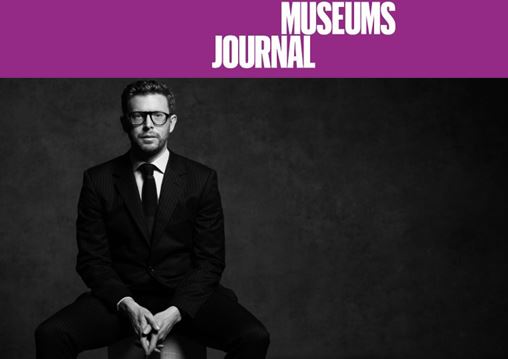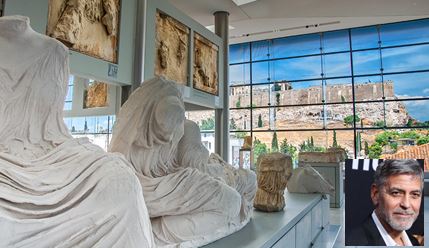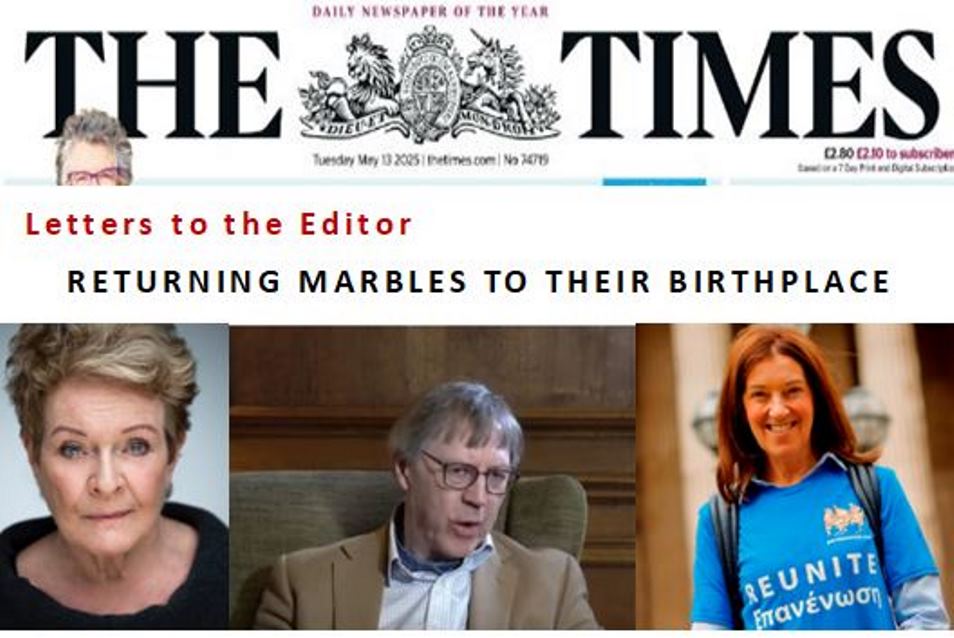The article 'British museums weigh the cost of repatriating exhibits', by the Marketplace, quotes Tiffany Jenkins:
“It’s about knowledge, about understanding, about preservation, about audiences. And it’s not about righting the wrongs of history,” Tiffany Jenkins said. “We should be thinking where can these objects be safest and where can they do the most good? Are objects going to be safe if they are returned to Nigeria, are they going to be seen by many people? I’m not convinced they are.”
Janet Suzman writes to Tiffany Jenkins and questions: "but we live in an age entirely devoted to attempting to right the wrongs of history do we not? All sorts of histories, pre-eminently that of slavery and the colonial occupations of countries and their peoples - and thus of those people’s cultures and possessions - are being questioned. And rightly so. Received mythologies of modern history are increasingly being re-thought and re-interpreted since the end of colonial powers. Britain’s was the most powerful and extensive and we know it took things because it could. The British Museum itself is an astonishing hymn to that concept.
Papers have reached their 50-year limit and are being released or coming to light. Those people who were there to tell the tale reveal are moved to recount the facts as they lived them before it’s too late. Things don’t stay hidden for ever. Pictures are being very slowly restored to their owners having been taken by the SS. Awareness of so many cultural appropriations is higher than ever it has been. Respect for others, so often falling short in practise, is, willy-nilly, now front and centre.
I’m a little surprised, too, that you don’t expand on what you mean by the phrase ’do the most good’. You were, I guess, being Aristotelean, but you might be doing the most good to a nation were you to return what is rightfully theirs, be it a precious skull of some ancient folk-hero, or works of sculpture unsurpassed in all of ensuing history.
Where can certain objects be safest you ask? I would suggest in purpose-built modern museums whose roofs don’t leak and in which the latest technology of temperature control and air conditioning exists. You yourself are an admirer of the stunning New Acropolis Museum in Athens (now more than 13 years old) as I've heard you say so. You cannot surely have a quarrel with the conservatory and scholastic skills at work there?
What I really fail to understand, though, is what the case can possibly be for denying a country authentic works of its own art. I know great art belongs to everyone, but nothing predicates that London is the sole place through which this ‘everyone’ passes. London’s days of being the centre of the known world are long gone. The internet has happened, and digital sharing amongst places of learning are normal. So is travel.
In any case, jaw-droppingly accurate digital replicas are now possible. Why on earth should the British Museum have the originals of the Marbles while denying them to Athens? Reverse that insular notion and hey-presto justice is done and excitement beckons as the BM discovers that no-one can possibly tell the difference. Indeed with perfect replicas of all the objects that were sneakily lifted by Elgin the BM might even rise to a corrective by restoring the exquisite patinas that once graced the Parthenon Marbles before they were scrubbed by crude wire brushes into institutionally white supremacist versions. The exquisite replicas can still ’tell their story’ as the authorities always put it. They could even be painted in the colours they once wore if the BM decided to create a block-buster show, or would that be too, too vulgar?
And as to being seen by many people, I must tell you that the BCRPM took a poll of the proportion of the 6 million annual visitors boasted by the BM only to find that only one sixth of them visit Room 18, the Duveen Galleries. That figure is easily matched and surpassed by the Athens Museum so please don’t worry about numbers.
Righting the wrongs of history is a tussle that the Western world is going through in a big way as I write this, and, Tiffany Jenkins, it has to be lived through and responded to else the BM and like-minded finders-keepers mentalities will hold us in thrall to the high-handed days of yore, which are mainly despicable in the light of modern sensibilities. Take a leaf, say I, out of the thinking that prevails in the great Dutch museums where a certain humanity prevails. Other museums feel the same it seems. UNESCO certainly does, as a whole body.
Nothing bad will happen, only good, if arguably the greatest of the national museums were to behave like a mensch and give the blasted Parthenon Marbles back to the Greeks."
Respecfully and sincerely,
Janet Suzman





Comments powered by CComment